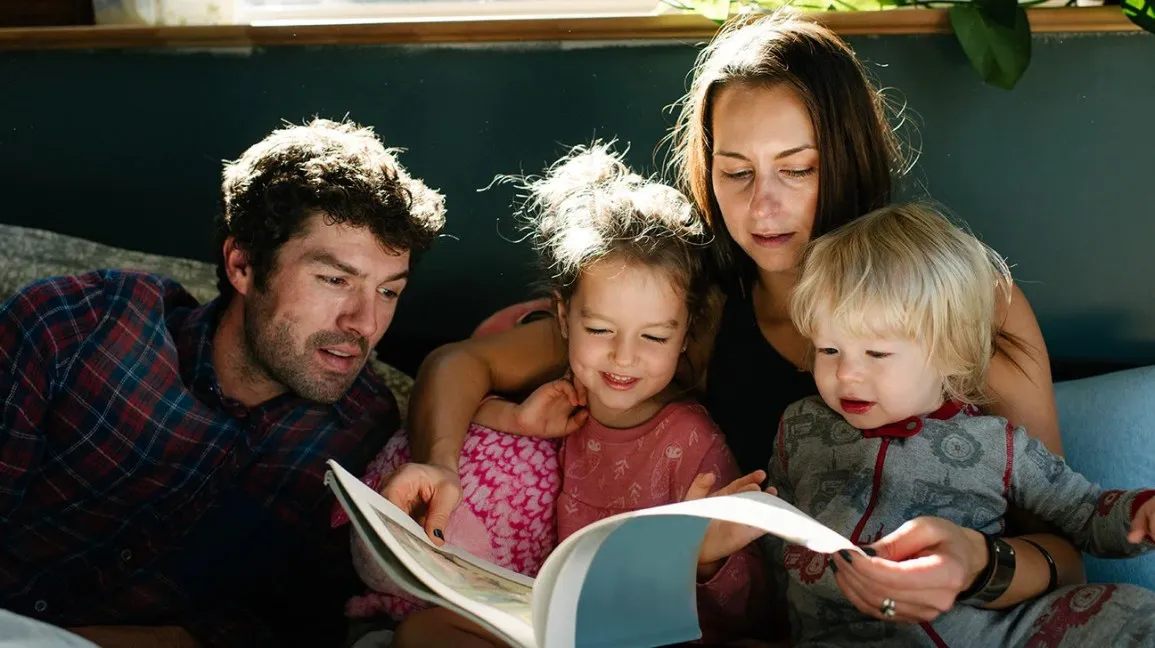In today’s fast-paced world, parents often face the challenge of balancing work, personal life, and raising children. Amidst these pressures, the practice of mindfulness has gained significant attention for its positive impact on both parenting and child development. Mindfulness, which involves paying full attention to the present moment without judgment, has been shown to benefit not just the individual practicing it, but also their interactions with others—particularly their children.

In this blog, we will explore the impact of mindfulness on parenting and child development. We’ll look at how mindfulness can enhance the parent-child relationship, improve emotional regulation, and foster a more positive environment for children to grow and thrive.
What is Mindfulness?
Before delving into its effects on parenting and child development, let’s define what mindfulness is. Mindfulness is the practice of being fully present in the moment, paying attention to your thoughts, feelings, and bodily sensations without judgment. It is a mental state achieved through practices like meditation, deep breathing, and conscious awareness of your surroundings.
For parents, mindfulness helps to focus on their children’s needs and emotions, while maintaining emotional balance in their own lives. By practicing mindfulness, parents can respond to their children with more patience, empathy, and understanding—qualities that are crucial for healthy parenting.
The Benefits of Mindfulness in Parenting
Mindfulness offers a wealth of benefits for parents. It helps to manage stress, improve emotional regulation, and strengthen the parent-child relationship. Let’s explore these benefits in detail:
1. Improved Emotional Regulation
One of the most significant impacts of mindfulness on parenting is the improvement in emotional regulation. Parenting can be overwhelming, and it’s easy to get frustrated or reactive in difficult situations. Mindfulness teaches parents to pause and observe their emotions before reacting, helping them to respond thoughtfully rather than impulsively.
- How it helps: Mindfulness helps parents remain calm in stressful situations. By practicing mindfulness, they can lower their stress levels, reduce anger, and avoid overreacting. This leads to more balanced and positive interactions with their children.
- Example: Instead of yelling when a child misbehaves, a mindful parent might take a deep breath, calmly address the behavior, and explain why it’s inappropriate.

2. Enhanced Parent-Child Connection
Mindfulness encourages parents to be more present in their interactions with their children. When parents practice mindfulness, they give their full attention to their children, which strengthens the bond between them. This presence fosters a deeper emotional connection and builds trust.
- How it helps: Mindful parents are able to listen more attentively to their children’s needs and emotions. They can provide emotional support and validation, which helps children feel safe and understood.
- Example: A mindful parent might sit down with their child and engage in a meaningful conversation, without distractions like phones or TV.
3. Reduced Parenting Stress
Parenting can be incredibly stressful, especially when juggling multiple responsibilities. Mindfulness helps parents manage this stress by teaching them to focus on the present moment rather than getting overwhelmed by future worries or past mistakes.
- How it helps: By practicing mindfulness, parents can reduce anxiety, improve their mental health, and build resilience. This leads to a more relaxed and balanced approach to parenting.
- Example: Instead of stressing about the long list of tasks to do, a mindful parent focuses on enjoying the moment with their child, whether it’s playing together or sharing a meal.
4. Increased Patience
Mindfulness cultivates patience, which is an essential quality for effective parenting. Parents who practice mindfulness are more likely to respond to their children’s behavior with patience and understanding, rather than frustration or impatience.
- How it helps: Mindful parents are less likely to get upset or impatient when their children make mistakes or act out. Instead, they respond with empathy and a desire to teach their children rather than punish them.
- Example: If a child refuses to go to bed, a mindful parent might take the time to understand the child’s feelings and calmly explain the importance of sleep, instead of getting upset.

The Impact of Mindfulness on Child Development
Mindfulness doesn’t only benefit parents; it also plays a crucial role in child development. Research has shown that teaching children mindfulness techniques can improve their emotional well-being, cognitive development, and overall mental health. Let’s explore how mindfulness impacts children’s growth.
1. Improved Emotional Intelligence
Emotional intelligence (EQ) is the ability to recognize and manage one’s emotions and the emotions of others. Mindfulness helps children develop emotional intelligence by encouraging them to recognize their feelings and understand how to respond to them in healthy ways.
- How it helps: Mindfulness teaches children to pause and reflect on their emotions, which improves their ability to manage them. As a result, they are more likely to respond to situations with empathy, self-control, and maturity.
- Example: A mindful child might take a moment to calm down when they feel upset instead of acting out in frustration.
2. Better Focus and Attention
Mindfulness improves a child’s ability to focus and pay attention. When children practice mindfulness, they learn to tune into the present moment, which helps improve their concentration in school and other activities.
- How it helps: By regularly practicing mindfulness, children can improve their attention span, reduce distractibility, and increase their ability to stay engaged in tasks.
- Example: A child who practices mindfulness might be better able to focus during homework or listen attentively during class discussions.
3. Reduced Anxiety and Stress
Mindfulness can help children cope with stress and anxiety, which are common challenges in today’s world. By teaching children to focus on their breath and stay present, parents can help them build emotional resilience and better cope with difficult situations.
- How it helps: Children who practice mindfulness are less likely to become overwhelmed by stress. They learn to manage their emotions and respond calmly to stressful situations, which reduces anxiety.
- Example: When facing a challenging situation, a child who practices mindfulness might use deep breathing techniques to calm themselves before reacting.

4. Better Relationships with Peers
Mindfulness helps children develop empathy and improve their social skills, which are crucial for building positive relationships with peers. By teaching children to be present and non-judgmental, they can build stronger, more compassionate friendships.
- How it helps: Mindful children are better at understanding their peers’ feelings and responding with kindness and support. This leads to healthier, more fulfilling relationships.
- Example: A child who practices mindfulness might notice when a friend is upset and take the time to offer support or simply listen.
How Parents Can Introduce Mindfulness to Their Children
Introducing mindfulness into your child’s life doesn’t have to be complicated. Here are some simple techniques that parents can use to help their children develop mindfulness:
1. Mindful Breathing
Mindful breathing is a simple technique that can help children relax and focus. Encourage your child to take deep breaths in through the nose and out through the mouth. You can turn this into a fun activity by having them imagine blowing out birthday candles or blowing a bubble.
2. Mindful Listening
Encourage your child to listen carefully to the sounds around them, whether it’s birds chirping, the wind blowing, or a favorite song. By focusing on sounds, children can learn to be more present and aware of their surroundings.
3. Mindful Movement
Mindful movement activities, such as yoga or stretching, can help children become more in tune with their bodies. These activities teach children how to relax and stay grounded, especially during stressful moments.
4. Gratitude Practice
Encourage your child to practice gratitude by regularly expressing appreciation for the positive things in their life. This simple practice helps children focus on the present moment and develop a positive mindset.

The Science Behind Mindfulness and Child Development
Research has consistently shown that mindfulness practices can have a positive impact on both parents and children. Studies have found that mindfulness can improve emotional regulation, reduce stress, and enhance overall well-being for both adults and children. Additionally, mindfulness has been linked to improved cognitive functioning, including better attention, memory, and problem-solving skills in children.
Conclusion: The Lasting Impact of Mindfulness on Parenting and Child Development
The impact of mindfulness on parenting and child development is profound. By practicing mindfulness, parents can create a more peaceful, supportive, and emotionally balanced environment for their children. This not only enhances the parent-child relationship but also plays a crucial role in fostering emotional intelligence, resilience, and well-being in children.
As parents continue to embrace mindfulness, they provide their children with the tools to navigate life’s challenges with calmness, patience, and self-awareness. Whether it’s through mindful breathing, active listening, or simply being present, mindfulness offers a pathway to healthier, more positive relationships and a brighter future for children.
Frequently Asked Questions (FAQs)
1. How does mindfulness benefit parenting?
Mindfulness helps parents manage stress, improve emotional regulation, and build a stronger connection with their children. It allows parents to respond thoughtfully rather than react impulsively, fostering patience and understanding in parenting.
2. What is the role of mindfulness in child development?
Mindfulness enhances emotional intelligence, improves focus and attention, reduces anxiety, and promotes healthy social interactions. It helps children understand and manage their emotions, which supports overall mental and emotional well-being.
3. Can mindfulness help with behavioral issues in children?
Yes, mindfulness can help children regulate their emotions and reactions. By practicing mindfulness techniques, children can learn to pause before reacting, reducing impulsive behaviors and helping them make better decisions.
4. How can parents teach mindfulness to their children?
Parents can teach mindfulness through simple activities like mindful breathing, mindful listening, yoga, and gratitude practices. It’s important to introduce these techniques in a fun and engaging way, making mindfulness a positive and enjoyable part of daily life.
5. Does mindfulness improve the parent-child relationship?
Absolutely. Mindfulness helps parents be more present with their children, listen attentively, and respond with empathy. This creates a stronger bond, fosters trust, and promotes positive communication between parent and child.
6. How does mindfulness reduce stress for parents?
Mindfulness helps parents become more aware of their thoughts and emotions, enabling them to stay calm and centered in stressful situations. By focusing on the present moment and practicing deep breathing, parents can reduce anxiety and avoid feeling overwhelmed.
7. Can mindfulness improve a child’s focus and concentration?
Yes, mindfulness has been shown to enhance a child’s ability to focus and concentrate. Regular mindfulness practice teaches children to be more attentive to the present moment, which can improve their performance in school and other activities.
8. How long does it take to see the benefits of mindfulness in parenting and child development?
The benefits of mindfulness can be seen relatively quickly, especially with consistent practice. Parents may notice improvements in their emotional responses and communication with their children within a few weeks. For children, the effects may take longer but can lead to lasting improvements in emotional regulation and attention.
9. Is mindfulness suitable for children of all ages?
Yes, mindfulness can be practiced by children of all ages. For younger children, mindfulness activities can be playful and simple, such as breathing exercises or guided imagery. Older children and teens can benefit from more structured mindfulness practices like meditation and journaling.
10. Are there scientific studies supporting the benefits of mindfulness for parenting and child development?
Yes, numerous studies have shown that mindfulness positively impacts both parents and children. Research indicates that mindfulness can improve emotional regulation, reduce stress, enhance cognitive abilities, and foster better social interactions in children.


